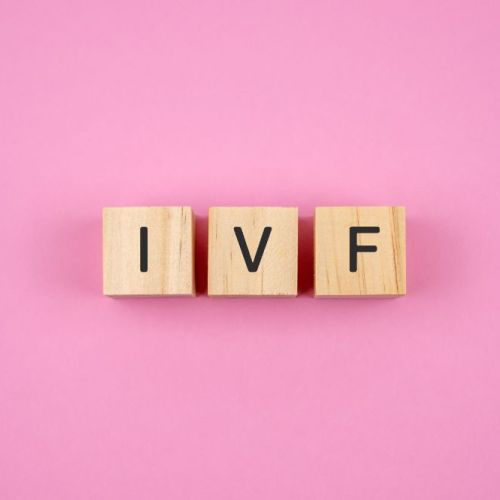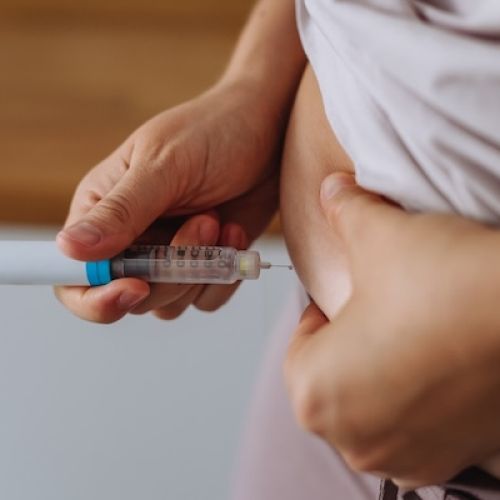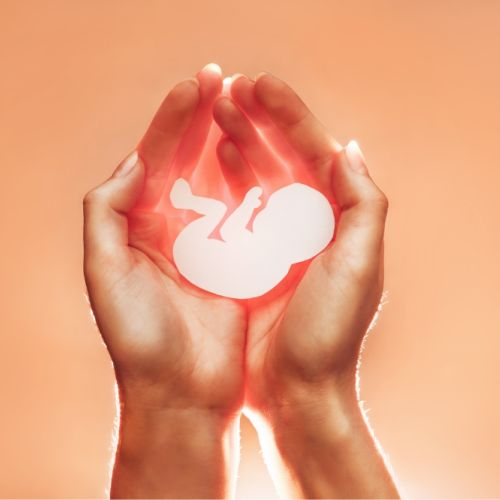Mini IVF Over 40: A Tailored Fertility Solution for Women Facing Age-Related Challenges

In vitro fertilization (IVF) has revolutionized fertility treatment, offering hope to countless couples facing infertility challenges. However, as women age, fertility naturally declines, particularly after the age of 40. For many women over 40, traditional IVF may not be the most suitable option, given the complexities of Diminished Ovarian Reserve (DOR) and reduced egg quality.
This is where mini IVF steps in as a more tailored and gentler solution. Mini IVF is specifically designed for women over 40, especially those struggling with low ovarian reserve or having faced difficulties with conventional IVF. It offers a gentler approach, focusing on quality over quantity, with fewer eggs retrieved and lower doses of fertility medication.
In this post, we’ll explore why mini IVF could be the right choice for women over 40, how it works, and the benefits it offers in comparison to traditional IVF.
How Mini IVF Works for Women Over 40
Mini IVF differs significantly from traditional IVF. The primary distinction lies in the way the ovaries are stimulated. In a standard IVF cycle, women often receive high doses of fertility medications to stimulate the ovaries to produce many eggs. While this may be ideal for younger women, those over 40 often do not benefit from such an aggressive approach.
In mini IVF, the process involves minimal ovarian stimulation, with much lower doses of fertility medication. The goal is not to retrieve a large number of eggs, but to focus on the quality of eggs that are retrieved. Women over 40 typically have a lower ovarian reserve, meaning they have fewer eggs available for fertilization, and many of those eggs may not be of the highest quality. Mini IVF takes this into account and seeks to work with the best eggs available, maximizing the chances of a successful pregnancy.
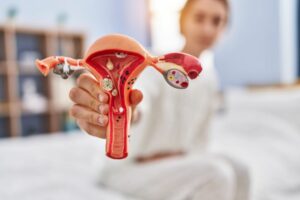
The mini IVF process includes:
- Lower medication doses.
- Women are given smaller doses of medications to stimulate egg production.
- Fewer eggs retrieved.
- While traditional IVF may retrieve multiple eggs, mini IVF typically focuses on retrieving a smaller number of
- high-quality eggs.
- Personalized approach.
IVF cycles are customized based on each woman’s unique health profile, taking into account factors like ovarian reserve, hormone levels, and overall fertility health.
This personalized and gentle approach can be especially beneficial for women over 40, as it addresses their specific needs and concerns regarding fertility.
Women Over 40: Perfect Candidates for Mini IVF
Mini IVF is an excellent choice for women over 40 who face the following challenges:
Low Ovarian Reserve
Women with a diminished supply of eggs benefit from mini IVF, which focuses on maximizing egg quality over quantity.
Egg Quality Concerns
If you’re worried about your eggs being of lower quality due to age, mini IVF can help by reducing the number of eggs retrieved but focusing on the best quality possible.
Previous IVF Failures
For women who have not had success with traditional IVF, mini IVF offers an alternative with lower stimulation and fewer eggs, which may improve the chances of success.
Desire for Less Medication
If you’re looking for a gentler IVF protocol with fewer fertility medications, mini IVF may be a good option.
If you’re unsure whether mini IVF is right for you, a fertility consultation with an experienced specialist can help you determine the best treatment plan based on your unique needs. Don’t hesitate to book an appointment with us today!
Women Over 40: Why Choose Mini IVF Over Traditional IVF
The primary difference between mini IVF and traditional IVF is the intensity of ovarian stimulation. In traditional IVF, high doses of fertility medication are used to stimulate the ovaries to produce as many eggs as possible. However, for women over 40, this approach may not yield the best results, as the ovaries may not respond as robustly to medication.
Mini IVF offers several distinct advantages for women over 40.
-
Reduced Risk of Ovarian Hyperstimulation Syndrome (OHSS)
One of the biggest concerns with conventional IVF is the risk of ovarian hyperstimulation syndrome (OHSS), a condition where the ovaries become excessively swollen and painful due to over-stimulation. Mini IVF uses lower doses of medication, significantly reducing the risk of OHSS.
-
Lower Medication Doses and Fewer Injections
The gentler stimulation in mini IVF requires significantly lower doses of fertility medications, which reduces the risk of side effects and is less stressful on the body. This makes it particularly appealing for older women who may have a heightened sensitivity to hormones or other medications.
-
Fewer, Higher-Quality Eggs
While traditional IVF aims for quantity by producing as many eggs as possible, mini IVF focuses on quality over quantity. Women over 40 may not have as many eggs available for retrieval, but mini IVF ensures that the eggs retrieved are the best quality, increasing the chances of successful fertilization and implantation.
-
Less Stressful Procedure
The gentler approach of mini IVF is less invasive and less stressful both physically and emotionally. Fewer injections, lower medication doses, and a more natural approach to IVF can help reduce the anxiety often associated with fertility treatments.
-
Cost-Effective Treatment Option
Mini IVF tends to be more affordable than traditional IVF, making it a more accessible option for women over 40. Fewer medication doses and fewer eggs retrieved lead to lower overall costs. For women who have already faced the financial strain of multiple IVF cycles, mini IVF provides a more budget-friendly alternative.
Mini IVF Success Rates for Women Over 40
Success rates for IVF can vary significantly based on a variety of factors, including the woman’s age, ovarian reserve, and the quality of the eggs retrieved. For women over 40, the success rates for traditional IVF tend to be lower, primarily due to the decline in egg quality and quantity with age.
Mini IVF success rates can vary, but studies show that, for many women over 40, the outcomes can be quite favorable when using this approach. Since mini IVF prioritizes the quality of the eggs retrieved, women are more likely to have higher-quality embryos to transfer, which can lead to a higher chance of implantation.
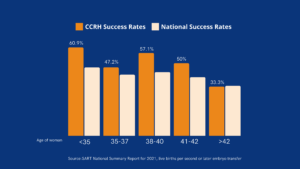
While success rates will depend on individual factors like the woman’s specific fertility health, mini IVF is generally associated with better outcomes for women over 40 compared to traditional IVF. Success largely depends on factors such as:
- Ovarian reserve.
The number of eggs a woman has available can significantly impact IVF outcomes. Women with a good ovarian reserve are more likely to succeed with mini IVF. - Egg quality.
Women over 40 often have fewer eggs, but mini IVF increases the chances of retrieving higher-quality eggs. - Frozen Embryo Transfer.
The quality of the embryos transferred plays a major role in IVF success. Mini IVF focuses on fewer, higher-quality embryos, which can increase the likelihood of a successful pregnancy. Women who do not achieve pregnancy in their first IVF cycle may opt for a frozen embryo transfer in subsequent cycles, which can increase the likelihood of success.
While no fertility treatment can guarantee success, mini IVF offers a personalized approach that maximizes the chances of conception while minimizing risks.
For women over the age of 43, studies indicate that mini-IVF might be a more effective option compared to conventional IVF. Research has shown that this age group experienced a 22% success rate with mini-IVF, significantly higher than the 5.5% success rate achieved through traditional IVF. This suggests that the milder stimulation protocols in mini-IVF may be better suited to older women, particularly those with reduced ovarian reserves.
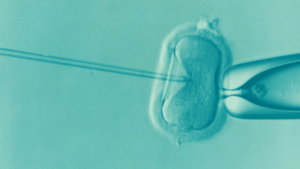
How Fertility Testing Guides Your IVF Treatment Plan
Before starting a mini IVF cycle, fertility testing is essential to determine if it’s the right treatment.
Key tests for women over 40 include:
-
Ovarian reserve testing
To assess the number and quality of eggs.
-
Hormone level testing
To evaluate how well the ovaries are functioning.
-
Egg quality assessment
To understand the likelihood of successful fertilization and embryo development.
These tests provide valuable insights into a woman’s fertility health and help doctors create a personalized IVF treatment plan.
Mini IVF and Donor Eggs: A Combined Solution for Women Over 40
For women over 40 who have a very low ovarian reserve or poor-quality eggs, donor eggs combined with mini IVF can offer an even greater chance of success. Donor eggs from younger women tend to have a higher quality, and when combined with the gentler stimulation of mini IVF, they can increase the chances of a successful pregnancy.
Using donor eggs in mini IVF can also eliminate some of the common challenges faced by women over 40, such as poor egg quality, by ensuring that only the highest-quality eggs are used in the process. This combination offers women a higher chance of success in achieving their desired outcome.
Mini IVF Protocol for Women Over 40: How Does That Work?
Mini IVF follows a similar process to traditional IVF but with fewer medications to stimulate the ovaries. Here’s how the process typically works for women over 40:
Step 1 – Ovarian Stimulation
In the first stage of mini IVF, the woman is given a small dose of fertility medications to stimulate the ovaries to produce eggs. Unlike traditional IVF, which uses higher doses of hormones to retrieve as many eggs as possible, mini IVF focuses on stimulating the ovaries in a more controlled, lower-dose manner to produce fewer eggs. The aim is to retrieve eggs that are of higher quality rather than quantity, as older women may have a reduced egg supply or diminished egg quality.
Step 2 – Monitoring and Egg Retrieval
During the stimulation phase, doctors will closely monitor the ovaries through ultrasounds and blood tests to track the growth of the follicles. When the follicles are mature, the eggs are retrieved in a minor surgical procedure known as egg retrieval. The procedure typically takes about 20 minutes and is done under sedation for the patient’s comfort.
Step 3 – Fertilization
Once the eggs are retrieved, they are fertilized in the lab either by traditional insemination (where sperm is placed in a dish with eggs) or through intracytoplasmic sperm injection (ICSI), where a single sperm is injected directly into the egg. The fertilized eggs are then incubated for a few days while they develop into embryos.
Step 4 – Embryo Culture and Transfer
After a few days of monitoring the embryos’ development, the best-quality embryos are selected for transfer into the woman’s uterus. In some cases, additional embryos can be frozen for later use. For women over 40, the chance of a successful pregnancy can sometimes be improved by using frozen embryo transfer (FET), as this allows the embryos to fully develop before being implanted.
Understanding the Costs of Mini IVF Treatment
The cost of mini IVF can be significantly lower than traditional IVF due to the reduced medication requirements and fewer eggs retrieved. However, it’s essential to consider additional factors that may contribute to the overall cost, including:
Egg freezing: If you choose to freeze embryos or eggs for future use, this can add to the cost.
Donor eggs: Using donor eggs involves additional fees, but can increase the likelihood of success for women with low ovarian reserve.
Financing options are often available, and many fertility centers offer payment plans to make mini IVF more accessible.
Woman Over 40? Start Your Mini IVF Journey Today
If you’re over 40 and considering IVF, mini IVF offers a promising solution that can increase your chances of success while minimizing the stress and risks associated with traditional IVF treatments. With its lower medication doses, fewer eggs retrieved, and focus on higher-quality eggs, mini IVF is a fertility treatment option worth considering.
While the journey to parenthood can be challenging, mini IVF provides a less invasive, more personalized approach, which may increase your chances of success. If you’re ready to explore your fertility options, request an appointment with us today to learn more about how mini IVF could help you achieve your dreams of starting or expanding your family.

Mini IVF Over 40 – All Your Questions Answered
Is Mini IVF Better for Women Over 40?
Mini IVF can be a great option for women over 40, as it uses lower doses of fertility medication and aims to retrieve fewer, higher-quality eggs, which is ideal for women with reduced ovarian reserve or poor egg quality. The gentler approach of mini IVF can also reduce the risks associated with ovarian hyperstimulation syndrome (OHSS), which can be a concern with traditional IVF protocols. For many older women, mini IVF offers a more affordable, less invasive treatment option that focuses on quality over quantity. However, the best treatment choice depends on an individual’s unique fertility profile. In some cases, traditional IVF or the use of donor eggs may be more appropriate. Consulting with a fertility specialist can help determine the most suitable approach.
What Is the Best IVF Protocol for Women Over 40?
The best IVF protocol for women over 40 typically involves a personalized approach that accounts for individual fertility factors such as ovarian reserve, hormone levels, and egg quality. For many women, mini IVF is a preferred option, as it uses lower doses of medication and focuses on retrieving fewer, higher-quality eggs. However, some women may require conventional IVF protocols with higher stimulation doses if their ovarian reserve is still adequate. The decision on which protocol to use should be based on a thorough fertility evaluation by a fertility specialist. In many cases, using genetic screening on embryos (like PGT-A) can also help improve the chances of success by selecting the healthiest embryos for transfer. Each patient’s treatment plan should be tailored to their specific needs to maximize outcomes.
How Many Rounds of IVF Is Normal for Women Over 40?
The number of IVF rounds a woman over 40 may need depends on her fertility health, including ovarian reserve, egg quality, and overall reproductive health. On average, women over 40 may require multiple IVF cycles to achieve pregnancy, with some needing 2 to 3 rounds. Success rates for IVF decline with age, so it’s important to consider options like genetic testing (PGT-A) to enhance embryo quality and increase the chances of success. Additionally, some women may need to consider egg donation if their own eggs are not viable. The key is to work closely with a fertility specialist to track progress and adjust the plan as needed. Women should be prepared for a potentially longer treatment process but also encouraged by advances in IVF techniques.
What Is the Success Rate of IVF At Age 40?
The success rate of IVF for women at age 40 is lower than it is for younger women, primarily due to the decline in egg quality and ovarian reserve as women age. On average, the success rate of IVF at age 40 is approximately 20% to 30% per cycle, though this can vary depending on factors like the woman’s overall health, egg quality, and the fertility clinic’s expertise. Donor eggs can significantly improve the success rate for women over 40, as eggs from younger donors tend to have higher quality. Success can also be influenced by whether the embryos undergo genetic testing (PGT-A) to ensure they are chromosomally normal. Despite the challenges, many women over 40 still achieve successful pregnancies with IVF, particularly with personalized treatment plans and advancements in IVF technology.
What Is the Cost of Mini IVF?
The cost of mini IVF is typically lower than traditional IVF, due to the reduced medication doses and fewer eggs retrieved. On average, mini IVF can cost anywhere from $5,000 to $8,000 per cycle, but the price can vary depending on the clinic, location, and any additional services required, such as embryo freezing or genetic testing. If egg donation is involved, the cost can rise significantly, as donor eggs usually add several thousand dollars to the total. Mini IVF is often seen as a more affordable option for women who do not need the intensive stimulation of traditional IVF. However, it’s important to factor in potential additional costs, such as medication, monitoring, and follow-up treatments. Financing options and payment plans may be available at many fertility clinics to help manage costs.
Who is an Ideal Candidate for Mini IVF?
While mini IVF can be a great option for many women over 40, it’s especially suitable for women who:
Have low ovarian reserve: Women who have a diminished number of eggs may benefit from the gentler stimulation used in mini IVF.
Experience egg quality issues: Women whose eggs may not be of the highest quality but who still want to focus on retrieving the best possible eggs.
Have had prior IVF failures: Women who have undergone traditional IVF without success might find mini IVF to be a more effective and less invasive option.
Prefer fewer injections: Women who wish to avoid the intense regimen of medications and injections associated with traditional IVF may prefer the simpler approach of mini IVF.
Are concerned about the risks of OHSS: Since mini IVF uses lower doses of medication, it poses a much lower risk of ovarian hyperstimulation syndrome.
Mini IVF is also a good option for women who want a less-invasive treatment and who may not need the large number of eggs that traditional IVF tries to retrieve.

